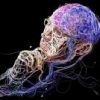tl;dr: I have high FBG (100-115) and postprandial for high sugar experiments (can get as high as 143), regardless of diet (it all started with keto, after which I progressed to VLC, paleo and now, 300+ g/day of mostly "clean" carbs), training or not training for 2 weeks, little sleep or a lot of sleep, etc. I am very lean, muscular and active, all of my blood markers are great (hba1c is borderline at 5.6), have no familial history, am not a high-risk ethnic group, and eat very "clean". Theories include potentially being unintentionally hypocaloric, physiological insulin resistance (but its been weeks), disruptive sleep, overtraining (though I believe I disproved this by taking 2 weeks off with the same #s), or something else altogether. Seeing endocrinologist who does not believe it is diabetes, but agrees it's odd. We're running labs next week. Until then, lab results are included in post below. ANY IDEA WHAT COULD BE GOING ON???
Hi Guys,
I've been searching for some answers on this issue for a while, and beyond picking up clues, haven't come to any solid answers. Any help is appreciated.
My issue is high fasting blood glucose (100 - 115) and relatively high post prandial (as high as 143, typically below 140). Now, before you jump to the conclusion of diabetes (which even my new endocrinologist, who's beginning to run tests doesn't think it is), please read on.
Throughout my life, I've had a high protein, high carb, low-fat (20-25%) diet, up until about 2.5 years ago. I read a Maffetone book and switched to low-carb, whole foods.
At first I think I went too far, because I was beginning to show signs of depression. I upped the carbs by a bit (1/2 box of Kashi GoLean Crunch each night!) and I felt better. About 15 months ago, I experimented with keto for 6 months. I fell into chronic depression. My friend reminded me, "don't you remember being depressed the first time?", but I was determined. I suspect a lot of the depression was due to terrible sleep, which was constantly interrupted by very low-carb cortisol / catecholamine spikes. I switched to low-carb paleo. Better, but not enough.
I bought a glucometer during my keto period to check if I was in ketosis. I was consistently above .7. One day I decided to check my FBG and saw that it was 110. This concerned me, but I then read about physiological insulin resistance (more on this below for those unfamiliar). I also seemed to have reactive hypoglycemia, because after experimenting with a few carbs, post prandial would sometimes drop into the 90's.
While in paleo, consuming 100-150 g/day of carbs, I pulled out the glucometer again, to find that my FBG was still the same (100 - 115). This concerned me. I decided that since I had done well throughout my life with high carb/protein, low fat, I would go back to it. This was about 4 weeks ago. My FBG is still the same, I feel tired when I wake up (I still move a lot in my sleep, but I'm not nearly as conscious when I wake up as I was during low-carb/keto; definitely more restorative than keto). My post-prandial can slightly exceed 140.
I'm a very active weight lifter and HIIT trainer. My stats below will tell you more about that – but the point is, I'm very much physically healthy, with plenty of muscle that's being depleted daily, theoretically thirsty to swallow up carbs. Also, I find it odd how my fasting & postprandial numbers are the same, regardless of how few or many carbs I ingest, the timing of my meals, whether I go a couple weeks without exercise or I train intensely for days...
Here's what I already know / have learned:
- Low carb can cause "physiological insulin resistance." This is well-known and accepted among low-carbers. They treat it as low/no long-term risk, though I don't think anyone has proven that to be the case. I'd prefer to have my blood glucose below 90.
- I'm aware of the dawn phenomenon, but that doesn't seem to be the case for me, since I see high numbers at other times, too.
- I once suspected overtraining, but have ruled that out after going two weeks without training, with no changes to my numbers.
- I may currently be calorically restricted. Could this be an explanation? With keto & paleo I was probably eating about 3,000 cals/day. I've come to learn that my basal rate is 1,900, my training uses 600 - 1000, and I walk 5+ miles /day, so my lifestyle probably burns another 1,000. In other words, I should probably be consuming closer to 4,000 calories. The issue right now is that I do not have the appetite to consume 4,000 calories of whole foods, so this week I decided to add in some gluten-free granola & fruits to up my numbers to be closer to my daily expenditure (at least for now, while trying to figure this out).
- I've included some notable quotes related to low carb / high blood glucose at the bottom of this post. Please at least read the quotes before you comment.
Stats (taken during paleo / moderate carb phase 5 months ago; may have been hypocaloric. I will have new stats in just over a week):
- Male, 29, 9% bf, 5'10 178lbs
- HbA1c = 5.6
- TSH: 1.82
- Free T3: 3.4
- Free T4: 1.2
- Test: 475
- Free Test: 66
- Note: Libido is moderate to low with occasional spikes
- ALT / SGPT, ALP, Billirubin, Albumin, Tot Prot, Globulin, A/G Ratio all good.
- AST / SGOT slightly high (44); could be from alcohol 2 days prior or exercise 1 day prior.
- Kidney health, bone health, blood health, vitamins & minerals all optimal levels.
- hs-CRP: .02
- LDL: 150
- HDL: 90
- Triglycerides: 76
- I'm not gaining weight / fat, other than a small amount from upping my cals and not training much over the past 2 weeks (maybe 1% increase in bf%; I've had 7-10% bf since I was a child, regardless of diet and activity levels).
- My resting heart rate averaged 56 this week.
- My HRV info for this week:
- AVNN: 1104
- SDNN: 94.7
- rMSSD: 67.5
- pNN50: 31.53
- LF: .301
- HF: .116
- Activity:
- Exercise 5-6 days/wk.
- HIIT 2 days
- weights 4 days
- Most workouts are 45 - 70 minutes
- I throw in some 5-6 mile cardio about 1x/wk
- I meditate daily and do not feel much anxiety / stress. Nearly all of my stress would be physiological.
- Diet & Sleep:
- 2.5 years ago: Low-carb diet (not strict, but I'd estimate 150-200 g/day)
- 1 year ago: I followed keto for 6 months; began blood glucose / ketone readings, noticed high levels of FBG. Believed it to be gluconeogenesis via physiological insulin resistance
- 6 months ago: I switched to VLC / low carb (100-150g/day). Issue remained.
- 1.5 months ago: I stopped experimenting with 2x weekly 16-18 hour fasts, after about 9 months
- 1 month ago: I progressively added more carbs in.
- Poor sleep for past 18+ months. I fall asleep immediately, but toss and turn a lot (video). I get about 3 periods of 40-50 mins of no movement per night.
- When I'm low-carb, I consciously wake up, energized. When I'm higher carb, I wake up, though barely consciously. I fall back asleep more easily too, with carbs. I presume it's cortisol spurring gluconeogenesis?
Theories:
- I considered overtraining. I took nearly 2 weeks off with no changes, and have therefor ruled this out.
- I considered low-carb, so I upped my carbs into the hundreds of grams (300-400 /day).
- Note, my mood is much improved after adding carbs back in, but blood glucose issues remain.
- I considered hypocaloric diet. Low carb paleo made me less hungry. Or, rather, not feeling the sensation of hunger as often (no more cravings for food). Over the past 2 weeks I've experimented and have found that I can eat more food than I thought, without feeling full. Being hypocaloric is a theory, leading to blood sugar regulation issues, but I haven't come across many papers on this.
- Poor sleep contributing to poor cortisol / blood sugar control, sparking a negative feedback loop?
- Stimulants. I removed them (coffee, tea) completely for a week with no effect.
Thoughts:
The fact that my numbers don't shift no matter what I do to my diet (add calories, remove calories, add carbs, add sugar, reduce training), my postrprandial never goes beyond 143 even when I have a "test" dessert fest and I never go below 80, I have no familial history, all other blood markers are great, I'm very fit, and these issues persist regardless of carb intake, makes me believe that it's not t1 or t2 diabetes.
Maybe I'm still not getting enough calories and need to continue to up them? This will be hard with "clean" calories; I think it would require cereals or sugary foods for me to go any higher with my intake at this point.
Some people on low carb forums state that it takes them 3+ weeks for their FBG to normalize after adding carbs back in (much longer than the 3 days for an OGTT that some quote). Maybe I take a little longer and should give it another week or two?
Maybe I need to change my final meal timing / size / macronutrient composition, to prevent gluconeogenesis during my sleeping "fast"? Though, I have tried lots of honey (3 tbsp) / cottage cheese (2-3 servings) / nuts (small handful) just before bed with no effect.
Maybe I'm totally off and it's something else altogether?
QUOTES / RESOURCES
"...asked about his gradual yet progressively rising fasting blood glucose (FBG) level over a 10 year period of paleolithic LC eating. Always eating less than 30g carbohydrate per day. Initially on LC his blood glucose was 83mg/dl but it has crept up, year by year, until now his FBG is up to 115mg/dl. Post prandial values are normal. He wanted to know if he was developing diabetes."
http://high-fat-nutr...istance.html[1]
"Still, a complaint that one sees a lot from people who have been doing glycogen-depleting exercise and intermittent fasting for a while is that their fasting blood glucose levels go up. This is particularly true for obese folks (after they lose body fat), as obesity tends to be associated with low GH levels, although it is not restricted to the obese. In fact, many people decide to stop what they were doing because they think that they are becoming insulin resistant and on their way to developing type 2 diabetes. And, surely enough, when they stop, their blood glucose levels go down."
http://healthcorrela...ing.html?m=1[2]
"Now I had something to tell my dad and others who'd been faithfully doing LC and became horrified, then scared, at fasting blood glucose measurements (which is primarily how the health community screens people for diabetes). I really didn't concern myself with it again—for all these last almost 7 years. OK, so long as post-prandial is fine (caveat: AFTER AN LC MEAL!), nothing to worry about; and combined with good HbA1c, and the fact that so far as we know, this condition will reverse in normal people after a few days of carbage, then just relax.
...That was until earlier this year when one of my collaborators, "Duck Dodgers," clued me into something. What if there are no populations on earth that we know of where you can observe the long-term effects of "physiological insulin resistance?""
..."then you would expect them to feature "physiological" insulin resistance—just like the thousands of LCers in various forums, my blog comments, and in my dad—right?"
http://freetheanimal...hydrate.html[3]

























































